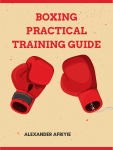Introduction
Soccer training, also known as football training, is the process of improving physical and technical abilities of players in order to reach peak performance levels. This process involves all areas of fitness, technique, and skills designed to help with both individual and team development. Soccer training comes in many forms including drills, scrimmages, and weightlifting.
Conditioning is a major component of soccer training that covers cardiovascular endurance along with resistance exercises that target specific muscle groups for game-specific tasks such as sprints or jumps. The intensity level of conditioning should be tailored to the age and skill level since younger athletes are likely to have lower levels of overall physical capacity. Further aspects of conditioning include flexibility which can prevent injuries as well as diet considerations which are important for optimal performance throughout the season.
Technical drills focus on improving ball handling techniques like dribbling, passing, shooting, and trapping while working towards better decision making during a match. Technical drills often involve a coach issuing instructions while providing feedback along the way. These drills can also be used to develop specific tactical scenarios such as counter-attacking or defending set pieces during games.
Finally, proper weight training is an integral aspect of soccer training because it can help improve speed by developing fast twitch muscles fibers in addition to contributing to strength gains that protect against injury by strengthening ligaments around tendons and joints within the body’s frame. However, it is important not forget that more does not always mean better when it comes to weightlifting since overtraining can lead fatigue which reduces performance rather than helping it reach its full potential.
Objectives
- Develop the technical skills required to be successful in soccer, including passing, dribbling, and shooting.
- Understand positioning and movement both offensively and defensively.
- Master the art of reading the game by understanding tactics and formations.
- Gain an increased knowledge of physical conditioning specific to soccer.
- Learn strategies for injury prevention so that athletes are able to stay healthy during competition.
- Develop a better understanding of the rules governing play so that they can make educated decisions on the field when playing or officiating games
Course Outline
Module One: Introduction to Soccer (Football)
– Overview of Soccer
-History of soccer (football)
-Essential concepts
-Terminology
-Structure
-Rules of soccer (football)
-Worldwide reach and impact.
Module Two: Basic Equipment Requirements
Module Three: Soccer (Football) Positions
-Description of various positions on the field
-Importance of each position
-Roles each position
-Responsibilities of each position
-How to select best players for each position.
Module Four: Strategy & Tactics
-Defensive strategy
-Offensive strategy
– Tactics and formations.
-Counterattacking During game
-Defending set pieces during games.
-Zone defense versus player-to-player defense
-Transitional play
-Corner kicks
-Throw-ins
-Goal kicks
-Free kicks
Module Five: Physical Conditioning & Nutrition
-Physical conditioning specific to soccer.
-Benefits of physical conditioning for a soccer player including endurance
-Speed and agility training routines
-Proper nutrition for performance enhancement and injury prevention.
Module Six: Mental Conditioning & Motivation
-The role of psychology in achieving peak performance levels through positive thinking
-The role of psychology in achieving peak performance levels through goal setting exercises
-Techniques to increase motivation for team building exercises.
Module Seven: Drills & Skills Training
-Passing drills
-Shooting drills
-Scrimmages
-Weightlifting
-Dribbling drills along with other skills essential in perfecting technique
-Trapping technique
-Heading technique
-Tackling technique
-Practice game situations in teams or small groups
-Ways to maximize individual potential through solo practice playing sessions.
Module Eight: Skills & Techniques
Module Nine: Physical Skills
-Running – Proper posture
-Stride length
-Acceleration Drills
-Agility
-Coordination Exercises
-Passing & Receiving Dribbling
-Shooting Heading Tackling
-Marking Physical Fitness
-Tips Tactical Awareness
Module 10: Mental Skills
-Positioning Teamwork Strategies
-Decision Making Concentration
-Visualization Anticipation
-Communication
-Patience Discipline
-Respect
-Good Attitude
-Positive Outlook Health
-Wellbeing Safety Precautions
-Injury Prevention
-Warm Up Exercises
-Hydration Nutrition
-Basics Orthopedic Assessment
-Recovery Strategies
-Physiotherapy Information
-Psychological Support Tips
Module Eleven: Exams




Reviews
There are no reviews yet.